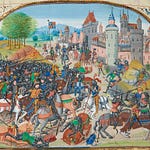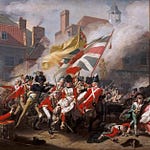Introduction
Carrie Nation was, of course, a prohibitionist. But so was Leo Tolstoy, Czar Nicholas II, and Vladimir Lenin; in fact, the first nation to prohibit the sale of alcohol was Russia. The first Socialist Prime Minister of Sweden was an advocate for temperance, and so was Tomas Masaryk, liberal founding-father of Czechoslovakia.
As Mark Schrad writes in his new book Smashing the Liquor Machine: A Global History of Prohibition, around the globe the “temperance-cum-prohibition movement harnessed the forces of organized religions into a broad-based progressive movement to capture the instruments of legislation and statecraft against powerful, established political actors.”
We can only understand American prohibition by realizing that it was just one part of a worldwide movement, advocated by people who often had little in common other than their interest in limiting alcoholism in their society. Moreover, as we discuss in the podcast, “prohibition” is a simple word that conceals much. While some advocates did press for the prohibition of the sale of liquor, others advocated temperance, which might take the form of advocating drinking beer instead of schnapps, or wine instead of brandy. There was never just one approach to dealing with the problems of alcoholism.
About the Guest
Mark Schrad is Associate Professor of Political Science at Villanova University. This is his third book on governmental policies towards alcohol and the networks that promoted prohibition or temperance. He also restores old typewriters—a detail that didn’t come up in the conversation, but his collection is truly impressive.
For Further Investigation
Mark Lawrence Schrad, Smashing the Liquor Machine: A Global History of Prohibition (Oxford University Press, 2021)
Schrad’s earlier works on alcohol politics, including The Political Power of Bad Ideas and Vodka Politics
American Council on Alcohol Problems Records, 1883-2015 (majority within 1920s-1960s)
Mark Schard, “Freedom from liquor: Ken Burns’s account of prohibition tells a popular story of booze in America. The historical record is far more sobering”, Aeon 6 September 2022
Listen & Discuss
What surprised you most about the global scope of prohibition? Do you think prohibition movements were more about morality, politics, or public health? Share your thoughts in the comments below—and consider forwarding this post to a friend who would enjoy the conversation.











